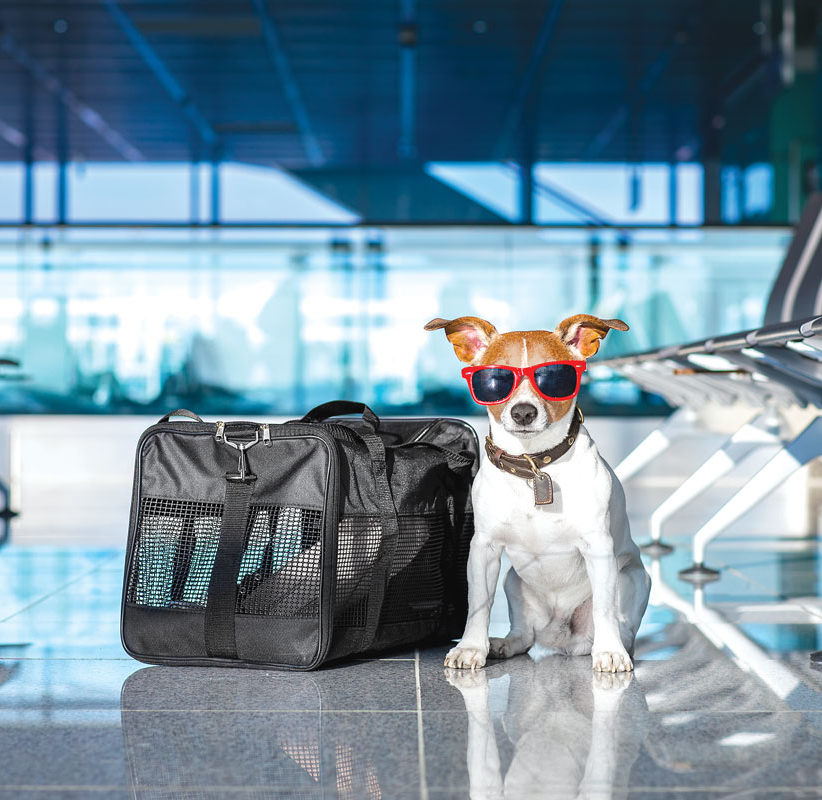Traveling with pets can be a rewarding experience, but it requires careful planning and consideration. Whether you’re embarking on a road trip, flying to a distant destination, or taking a train, understanding the nuances of pet travel is crucial. This guide aims to provide detailed insights into how to travel with pets, ensuring their safety, comfort, and well-being throughout the journey.
Understanding Your Pet’s Needs
Before planning any trip, it’s essential to evaluate your pet’s health. Schedule a visit to the veterinarian to ensure your pet is fit for travel. Obtain any necessary vaccinations, medications, and health certificates. Discuss any potential travel-related stressors and how to mitigate them.

Pet Identification and Microchipping
Ensure your pet has proper identification, including a collar with tags displaying your contact information. Microchipping is highly recommended as it provides a permanent form of identification that can be invaluable if your pet gets lost.
Preparing for the Journey
Selecting an appropriate carrier is crucial for your pet’s safety and comfort. The carrier should be well-ventilated, spacious enough for your pet to stand, turn around, and lie down, and compliant with the travel regulations of your chosen mode of transport.
Acclimating Your Pet
Familiarize your pet with the carrier and the concept of travel. Gradually introduce them to the carrier and take short trips to help them acclimate. Positive reinforcement, such as treats and praise, can make the experience more pleasant Ensure your pet is securely fastened in the vehicle. Use a pet seatbelt, carrier, or crate to prevent distractions and protect your pet in case of sudden stops or accidents. Never leave your pet unattended in a parked car, especially in extreme temperatures.
Comfort and Breaks
Plan regular breaks during long car journeys to allow your pet to stretch, relieve themselves, and hydrate. Maintain a comfortable temperature inside the vehicle and avoid feeding your pet right before the trip to prevent motion sickness. Research and understand the specific policies of the airline you plan to travel with. Different airlines have varying regulations regarding pet travel, including carrier dimensions, weight limits, and health documentation requirements.
Booking and Preparation
Book your flight well in advance and inform the airline about your pet. Choose direct flights to minimize stress and avoid layovers. Arrive at the airport early to complete the necessary check-in procedures for your pet.
In-Flight Considerations
During the flight, ensure your pet remains in their carrier and is comfortable. Avoid opening the carrier during the flight and provide a familiar blanket or toy to help soothe your pet.

Traveling by Train
Similar to air travel, train companies have specific policies regarding pet travel. Research these policies in advance and ensure you comply with all requirements, including carrier specifications and health documentation. Choose a seat with ample space for your pet’s carrier and ensure they are comfortable throughout the journey. Provide regular bathroom breaks and hydration as needed. Research and book pet-friendly accommodations in advance. Many hotels, motels, and vacation rentals accommodate pets, but it’s essential to confirm their policies and any additional fees.
Exploring the Destination
Familiarize yourself with pet-friendly attractions, parks, and restaurants at your destination. Ensure your pet is always on a leash and follows local regulations. Be mindful of your pet’s comfort and safety in unfamiliar environments.
Conclusion
Traveling with pets requires meticulous planning and consideration, but the rewards of having your furry companion by your side make it worthwhile. By understanding how to travel with pets and taking the necessary precautions, you can ensure a safe, comfortable, and enjoyable journey for both you and your pet. Whether by car, air, or train, proper preparation and attention to detail will make your travel experience smooth and memorable.












